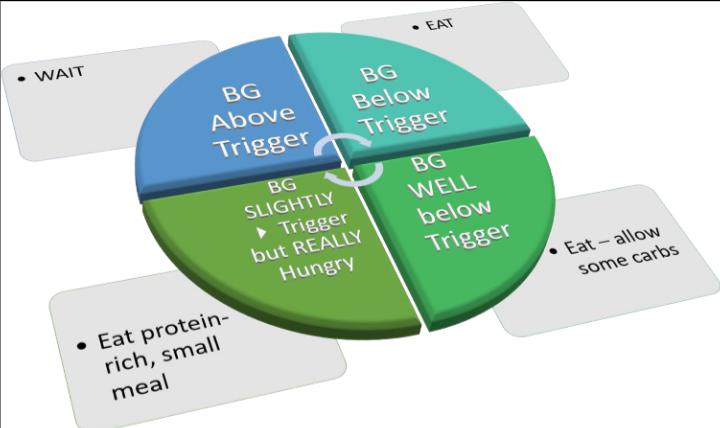optimisingnutrition.com/dat...
Hunger Training is really interesting, and might be useful for beginning fasters and those who haven't been able to make it work for them. It's basically using a blood glucose (fingerprick) meter to learn when when are really hungry and gradually increase your fasting window.
So for three days you take your blood glucose before you eat when you are hungry, to establish your target BG. When you establish what your BG is when you are hungry, you set your trigger a little below that. You can only eat when you go below your trigger. As you get used to that, you can lower your trigger again and again.
The idea is that you a pushing yourself a little, but never to the point you go crazy and you don't binge, because you are just a little hungrier than you are when you normally eat.
This a ton more to read, and you can download a manual from the link above.
(Interestingly, I am monitoring my interstitial glucose and there is no relationship between hunger and glucose level; in fact, when I am hungry my glucose is a little higher if anything. I guess that's low carb for you.)
